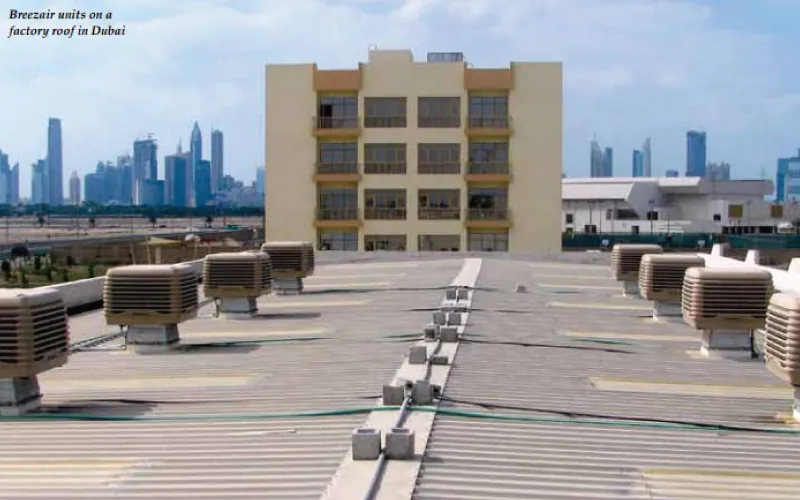CLIMAGULF, promoted recently from UAE distributor of Breezair evaporative air conditioning products to master distributor for the entire GCC region, says it aims to capture a 25 per cent share of the market for branded items in the same category within the next two years in the region.
The Breezair line is manufactured by Seeley International Australia. In evaporative cooling technology cooling is created by hot ambient air passing over water-soaked cooling pads. Natural evaporation helps soak up the heat and cools the hot air. The effect created by evaporative air cooling is similar to the cooler conditions found at or near large expanses of water.
“Out of 20 application areas that have been identified for the Breezair systems, we have already established the efficacy of these systems in 12 of the areas in the UAE. This year too we have been focusing on our principal target of covering all the 20 application areas,” said ClimaGulf managing director Sabu C Abraham.
Breezair systems have been installed at UAE sites including Al Wasl vehicle testing centres, kitchens of the Hospitality and Catering Company in Ruwais, the outdoor dining area of Fenyala Restaurant at Qanat Al Qasba, Lucy switchgear manufacturing plant, RAK Ceramic’s kiln area, Sharjah Heritage, the Sky Diving Institute on Al Ain Road and Streit Vehicle Factory in Ras Al Khaimah (secondary cooling).
The company is currently not focusing on residences, but has identified huge potential in this segment due to major landscaping works in villas. “We hope to venture into this area once we have established our distribution network across the GCC region. However, with regard to industries, we have received a positive response for Breezair. This we believe is due to the fact that there are very few options for industrial establishments when it comes to providing comfortable work conditions and a natural cooling environment inside factories,” said Abraham who claims the company enjoyed 150 per cent growth in 2011.

Abraham: response positive
“With the size of the Middle East market for air cooling systems estimated at 100,000 units per annum, and with all countries in the GCC region supporting environmentally friendly and energy efficient sources of air-conditioning, we believe we can successfully tap into the huge potential that exists across this region for this innovative natural air cooling technology.” Breezair’s advantages have been listed as very low energy consumption, reliability and durability of the product, an intelligent water management system, a digital smart box that monitors, manages and controls all the air conditioner features to provide ultimate comfort control; absence of harmful CFC gases and machines that are easier and cheaper to install and maintain. The units use as little as 20 per cent of the energy consumed by conventional air conditioning systems, Breezair’s makers highlight. They also say a typical unit needs only 40 fils of water per hour to operate on the hottest day. On a day when the mercury rises to 45 degrees C, a drop of up to 15 to 18 degrees C can be expected in a place where a Breezair unit has been installed.
The Breezair system is enveloped in a corrosion-proof cabinet where virtually no steel parts are used except for the motor which is completely housed in a plastic blower assembly. The Permatur casing is made from UV-stabilised structural polymer which is the same material used in the manufacture of space shuttles. Breezair cabinets carry a 20-year guarantee and 10-year structural guarantee.

“As we have been recently appointed master distributor for Breezair in the GCC region, our primary aim is to establish a base of reference in each of the application areas, as well as develop a strong distribution network driven by high quality sales and service orientation,” said Abraham. “As a first step, we have started looking for associates in the other GCC countries to promote the Breezair brand in their respective territories. Alongside our marketing programme, we will also assist our clients in proper equipment selection and designing, as well as offer basic training to their staff. In the UAE, we plan to explore additional opportunities including schools and universities, the oil and gas sector, automotive service areas, parks and recreation areas including wildlife projects.”


